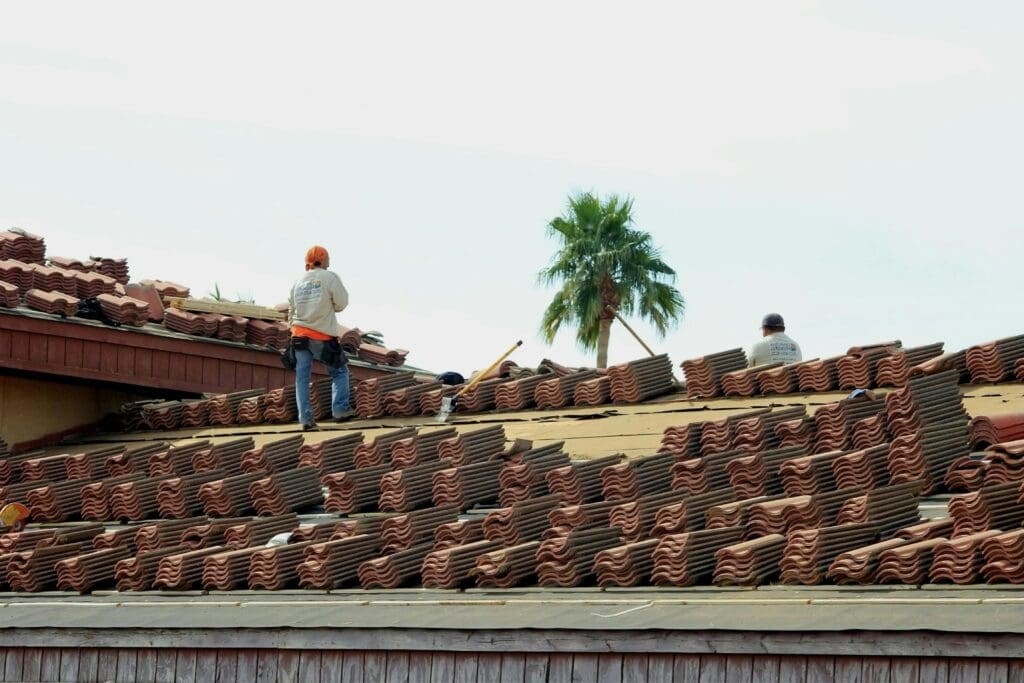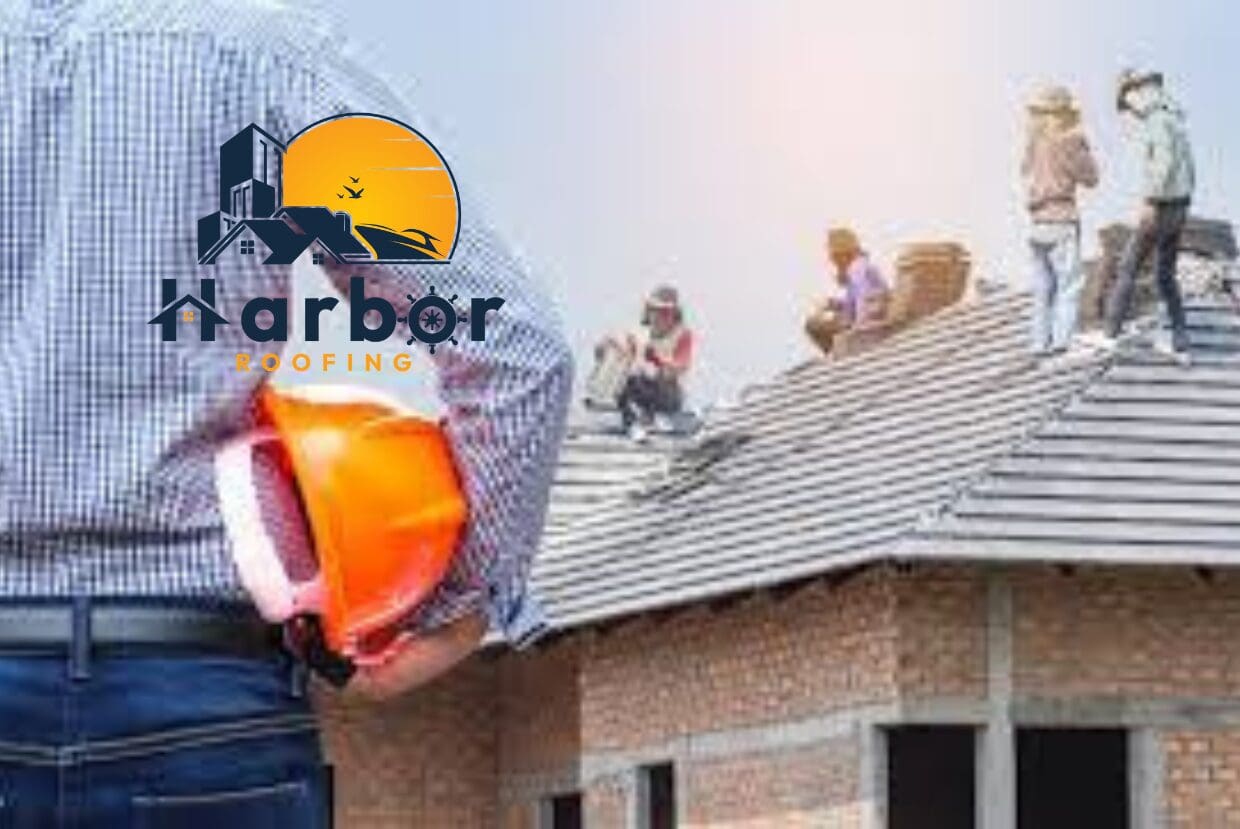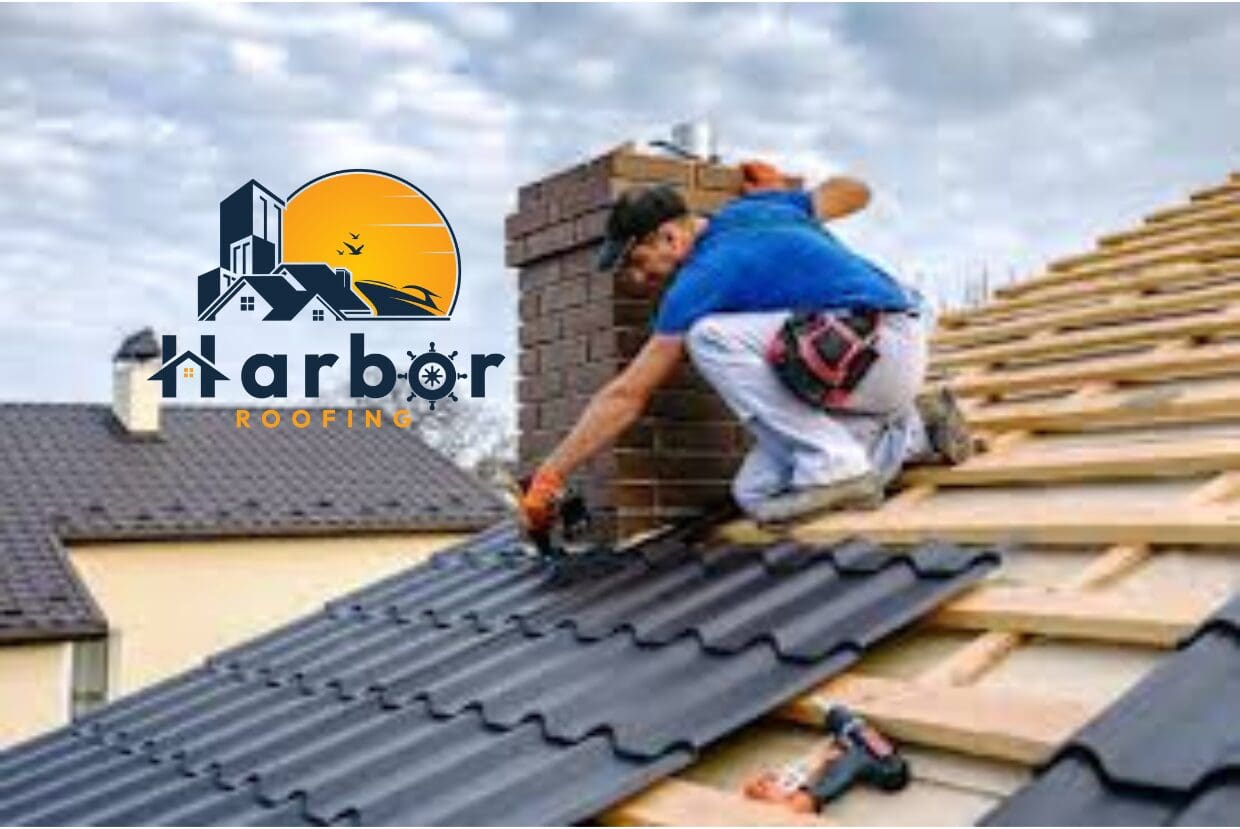Table of contents
- Why Choosing the Right Roofing Contractor Matters
- How to Start Your Search
- Ask the Right Questions Before You Commit
- Common Warning Signs of an Unreliable Roofing Contractor
- Comparing Roofing Quotes the Smart Way
- Understanding Roofing Contractor Warranties
- What to Expect After Hiring a Trustworthy Roofing Contractor
- How Local Climate Shapes Your Roofing Choices
- Your Roof Deserves a Contractor You Can Truly Trust
When the next storm comes rolling in, do you think your roof will either protect your home or leave it exposed? Here in Florida, selecting a trustworthy roofing contractor is not just about money; it is a decision for peace of mind. Especially in regions that are affected by heat, rain, and/or hurricanes, the right professional can make a huge difference.
Unfortunately, many homeowners realize this truth the hard way: not all roofers fulfill their promises. Scams, unsatisfactory craftsmanship, and hidden expenses can turn a simple repair into an expensive disaster. Trust and transparency are the two biggest traits that set a trustworthy professional apart from a fast-talking contractor who suddenly disappears when the final payment is made.
In this guide, we will provide you with the steps to find a licensed roofing contractor who can be hired confidently. You will also learn how to check their credentials, compare warranties, and identify red flags before signing anything. All provided through straightforward research-backed steps to help you protect your roof and your investment.
Why Choosing the Right Roofing Contractor Matters
Your roof protects everything you value, whether it’s your family, the home itself, or peace of mind. However, if a less-than-reputable roofer makes one mistake, you may be dealing with leaks, mold, structural damage, and costly insurance claims. For this reason, picking a quality roofing contractor goes beyond aesthetics or price. It is a matter of keeping your home safe and keeping its value for years to come.
A Quality Roofing Contractor Protects More Than Your Roof.
If you hire a licensed roofing contractor, you will benefit from workmanship that is professional and backed by warranties. These professionals know how to manage permits, follow specifications from manufacturers, and use materials appropriate for Florida’s climate. In short, hiring the right experts means fewer repairs, longer roof life, and real accountability if something goes wrong.
The Rising Risk of Unlicensed Roofer
Many roofing complaints originate from contractors who lack credentials or insurance. For post-disaster rebuilding, Illinois regulators discovered thousands of roofing contractors worked within that framework without the state licensing required, putting homeowners at risk for safety and quality.
Similarly, the state of Connecticut’s consumer protection authority recorded 285 consumer complaints concerning roofing, which is an increase over previous years, with complaints involving unlicensed roofs or roofing companies. Therefore, you should be sure to validate credentials, confirm a licensed contractor, and read contractor reviews before entering into any contract, for both your home and your investment.
Now that you know why trust matters, it’s time to learn how to identify the most reliable roofing contractor in your area. The one who delivers integrity, skill, and lasting protection.

How to Start Your Search
Get Recommendations and Check Local Experience
The easiest way to find a trustworthy roofing contractor is to reach out to those in the vicinity of your residence. Talk to people in your neighbourhood, friends, and community groups about who they have hired and would recommend.
Real-life experience is necessary and speaks more than any advertisement would. Then you should check out reviews on roofing contractors on Google, Yelp, and the Better Business Bureau (BBB) to verify consistency and reliability.
Moreover, look for roofers with long-standing local experience, because they understand your region’s unique weather challenges, building codes, and insurance requirements. Favor companies that have:
- Operated locally for at least five years
- Proven customer satisfaction across multiple review platforms
- Familiarity with regional roofing materials and climate needs
Check Credentials — Licensing and Insurance
Prior to hiring, make sure to verify that you have engaged a licensed roofing contractor. Licensing confirms that the roof contractor has met state or county criteria for training, safety, and accountability. Request documentation or use your state’s verify portal to guarantee qualifications.
A trustworthy roofing contractor will also provide proof of:
- Workers’ compensation insurance — protects you if a crew member is injured on-site
- General liability insurance — this covers accidental damage to your property
Not to mention, these practices help in protecting yourself from financial risk. As well as confirm you’re dealing with a professional who values transparency and responsibility.
Verify Track Record and Reputation
The best thing about a reliable contractor is that they don’t just talk about quality, they proudly show it. This allows you to review their previous projects, testimonials, and even before-and-after photos. Solid track records reflect consistent craftsmanship and customer care.
Be sure to confirm that the contractor you are working with has a local business address, not just a P.O. box. As well as an involvement with the community (projects/sponsorships, etc.). This is because a reliable roofing contractor will likely stay in their community, resulting in a solid business relationship, and work with integrity. When you are searching, look for:
- Genuine online reviews and word-of-mouth praise
- Evidence of completed local projects
- Stable business presence and positive community involvement
Ask the Right Questions Before You Commit
Ahead of signing a contract, create a list of intelligent, specific questions to distinguish a trustworthy roofing contractor from an unqualified one. This is your opportunity to evaluate the contractor’s transparency, confidence, and professionalism. A licensed roofing contractor will invite your questions and answer them clearly and willingly. Here are a few important questions every homeowner should ask:
- Are you a licensed roofing contractor, and can I see your license?
- How long have you been in business locally?
- What brands or materials do you install, and do you have manufacturer certifications?
- What kind of roofing contractor warranty do you provide?
- Can you share recent references or completed projects near me?
- What’s your expected timeline, payment structure, and cleanup plan?
Moreover, after hearing your concerns, a strong, professional roofer will:
- Provide documentation and the locational license immediately.
- Clearly explain warranty (labor and materials).
- Have them present local clients or photos of past work.
- Explain their process with confidence and transparency.
Red Flags in Contractor Interviews
During your interview, if a roofer starts to avoid your questions or gives vague answers, consider it a warning sign. Generally, an unreliable or unlicensed roofer will:
- Refuse to show proof of insurance or licensing.
- Pressure you to pay upfront in full.
- Avoid discussing warranty details or references.
- Promise “cheaper than everyone else” rates with no written estimate.
Keep in mind that a reputable contractor is more than happy to inform and educate you on the questions you have. In addition, they want you to feel cozy that you have gotten your questions answered and you don’t feel rushed. Lastly, taking the time to get a thorough interview helps to reassure that you have hired a trustworthy roofing subcontractor who values integrity, quality, and trust long-term.
Common Warning Signs of an Unreliable Roofing Contractor
Even in an attractive proposal, there can be some risks hiding underneath. While interviewing, look for hints that might suggest the roofer can be untrustworthy. What are some of the most common red flags? Forged or missing paperwork. If a roofer can’t produce proof of licensing and insurance immediately, walk away, no excuses. A licensed roofing contractor will always provide those details proudly and transparently.
Other warning signs include:
- High-pressure tactics — insisting you sign “today only” deals.
- Unusually low bids — often a lure for poor materials or incomplete work.
- Vague contracts — no mention of warranties, materials, or payment schedules.
- No physical address or verifiable business information.
- Negative or inconsistent roofing contractor reviews on multiple platforms.
These hints generally point to roofers who disappear after payment or leave behind substandard work.
How to Protect Yourself from Roofing Scams
If you want to avoid these problems, make sure to verify every detail before committing. Always:
- Check their state license number online.
- Confirm both liability and workers’ compensation insurance.
- Request a written contract that includes a roofing contractor warranty.
- Read reviews carefully and ask for recent local references.
Just by being proactive, you can make sure that your home is being handled by trustworthy roofing contractors. And not an expensive mistake discussed as an appealing offer.

Comparing Roofing Quotes the Smart Way
When you are collecting estimates, always compare “apples to apples”. What this means is that each roofing quote you receive should clearly outline materials, tear-off costs, labor, permits, and cleanup. In fact, a trustworthy roofing contractor will break each of these down to minute details. Thus, allowing you to understand exactly what you are paying for, meaning no hidden fees or vague promises.
Examine the proposals versus each other for consistency. If one estimate is extremely low, that is a major red flag. Low estimates often mean cutting corners on materials or the use of untrained labor, or possibly omitting permits.
Generally, a higher quote from a licensed roofing contractor reflects good safety practices. This includes insurance coverage and uses quality materials that are meant to last. In general terms, long-term value exceeds short-term savings.
Understanding Roofing Contractor Warranties
Before signing, review the roofing contractor warranty carefully, as it can act as your safety net. Moreover, there are typically two main types of protection:
- Workmanship Warranty — Covers errors made during installation or repairs.
- Manufacturer Warranty — Covers defects in roofing materials, such as shingles or membranes.
Not to mention, a reliable roofing contractor will explain both in great detail. This will also include what’s covered, how long it will last, and how to file a claim if it comes to it. Another thing to note, make sure to get the warranty in writing, and keep a copy with your home records.
Employing a licensed roofing contractor helps to keep these warranties intact, since most manufacturers only recognize coverage for roofs if a certified contractor performed the installation. A contractor who values transparency, quality, and accountability guarantees your roof and investment will be protected.
What to Expect After Hiring a Trustworthy Roofing Contractor
Once you have selected a trustworthy roofing contractor, the actual work begins, and professionalism needs to carry through the entire process. All aspects of the project should be clearly marked in writing. Including the scope of the project, materials used, start date, and completion date, payment terms, and warranty coverage.
The licensed roofing contractor you choose should always have a clear agreement and urge you to look it over before work begins. Expect your contractor to handle:
- Permits and inspections — guaranteeing all local building regulations are met.
- Property protection — using tarps or guards to protect gardens, siding, and gutters.
- Debris removal and cleanup — leaving your property as clean as they found it.
Keep organized records of all paperwork, including:
- Signed contracts and change orders
- Payment receipts
- Roofing contractor warranty documents
- Professionalism Is the Final Proof of Trust
Similarly, throughout the project, be sure to observe how the contractor communicates, manages their crew, and coordinates safety on-site. A reliable roofing contractor will give you updates, respect your property, and address the issue. Their behavior on the job will show true reliability.
How Local Climate Shapes Your Roofing Choices
Your location plays a major role in the type of roofing your home needs.. For instance, heavy rain, extreme heat, and hurricane-force wind loads in states like Florida or Texas can challenge even your strongest materials.
Whereas in the Midwest, hail and freeze-thaw cycles contribute to shingles cracking or lifting. A trustworthy roofing contractor understands how local weather patterns impact performance, making sure your roof can stand up to the regional climate.
It is extremely important to hire a reputable roofing contractor with years of local experience. It not only allows them to know which products, underlayments, and ventilation systems work best in your area. They also understand local building codes and insurance requirements. Thus, allowing them to guarantee your installation meets all legal and safety requirements.
While hiring, always ask potential contractors:
- How do they adapt installations to your local weather?
- Whether they follow regional code updates.
- What materials do they recommend for durability in your climate?
Also, remember this: local expertise is the difference between a roof that merely survives and one that lasts.
Your Roof Deserves a Contractor You Can Truly Trust
The strength and longevity of your roof depend on the services of a trustworthy roofing contractor. Someone who not only values their craftsmanship but also their integrity. So, before hiring a roofing contractor, make sure to verify licenses, compare warranties, and read roofing contractor reviews before deciding.



